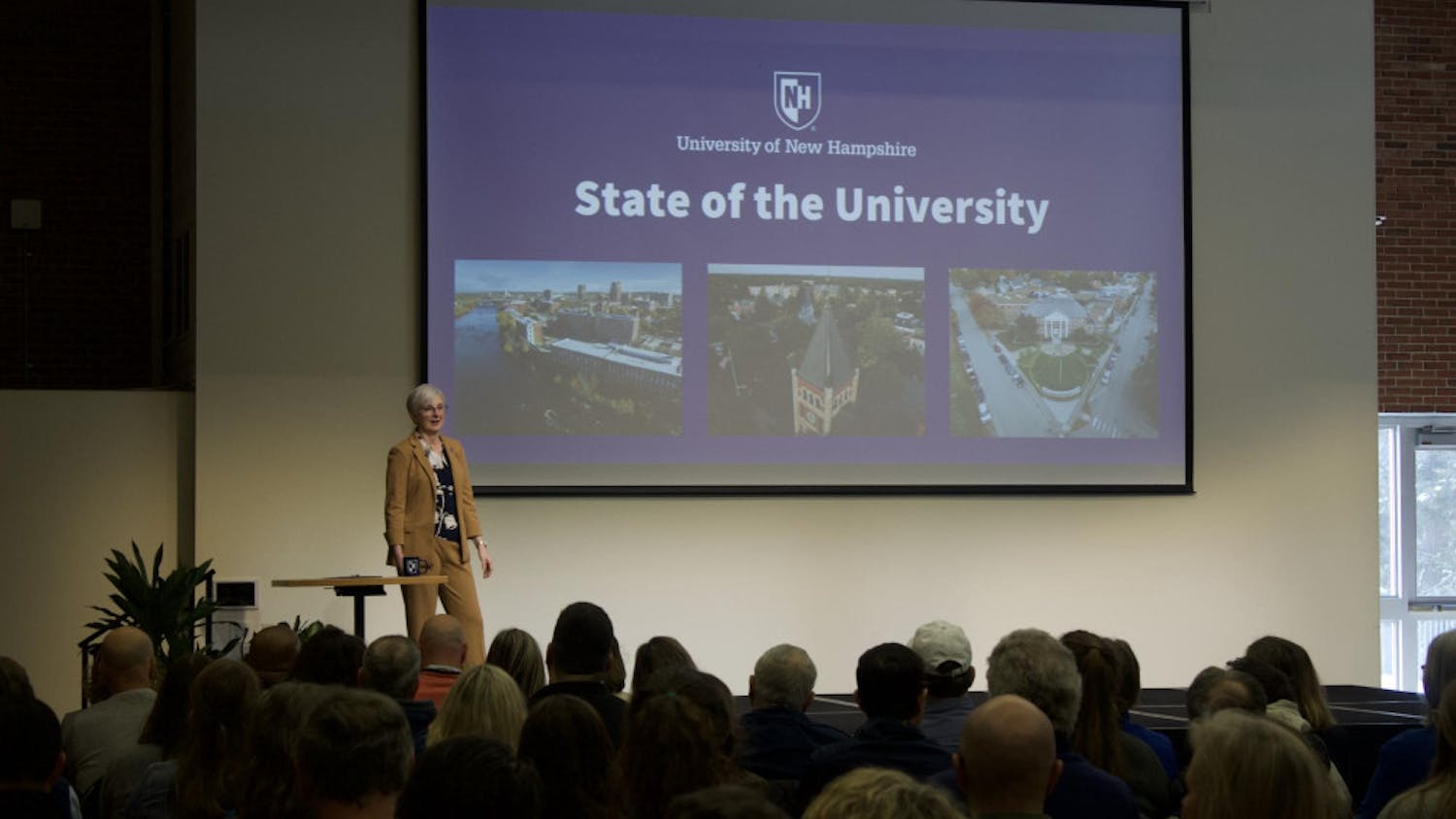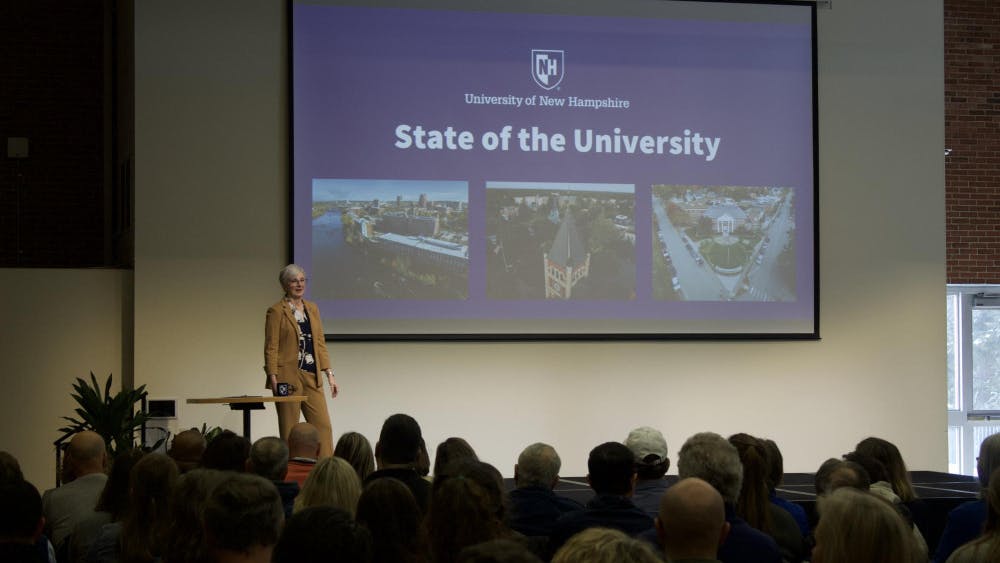Since its introduction as a university-wide effort in 2000, the Undergraduate Research Conference (URC) has grown to be one of the largest and diverse showings of scholarship, research and academic excellence in the nation, a place where more than 1,800 students, mentored by over 400 faculty members, can showcase their findings in their area of expertise via poster boards, oral presentations or creative demonstrations according to the URC 2017 Program Booklet.
The 18th annual URC kicked off with the UNH Manchester URC Oral Presentations on Tuesday, April 18, in Pandora Mill from 10 a.m. to 2 p.m. and will conclude on Saturday, April 29 in Paul College.
The event was organized by Hamel Center for Undergraduate Research’s URC coordinator, Katie Donnelly.
Over the upcoming weeks, the URC will take place in Holloway Commons, the Memorial Union Building (MUB), Murkland Hall, Paul Creative Arts Center (PCAC), Parsons Hall, the Whittemore Center, Pettee Hall, Cole Hall, Paul College, McConnell Hall and even UNH Manchester.
Co-chair of the Interdisciplinary Science and Engineering (ISE) Symposium Tara Hicks Johnson outlined the conference’s mission, specifically referring to the ISE Symposium that took place on Wednesday in the Whittemore Center.
“The students that participate in the URC ISE event receive many benefits. It is a chance for students to collaborate with students from other departments, a chance they can effectively organize their research, develop timelines and concisely present their findings to those in industry and academia,” Johnson said.
ISE featured poster presentations from students from 17 scientific and engineering disciplines. A total of 74 judges evaluated those presentations and chose winners and honorable mentions from those 17 disciplines according to Johnson. She added, each winner was awarded a prize of $500 for their research.
The URC was organized by the Hamel Center for Undergraduate Research, which is the administrative home of the URC. The mission of the conference is to provide students with the resources and financial support to pursue research for scholarly and creative projects, according to the undergraduate research conference’s 2017 Program Booklet.
According to the Undergraduate Research Conference’s 2017 Program Booklet, “In every research process, the final stage is the communication of findings to the wider public, and the URC enables students to share the results of their scholarship with fellow students, faculty, staff, family members, federal and state agency personnel, business and industry representatives, and members of our local community.”
The URC is essential in giving students practice in public speaking, communicating complex ideas, sharing ideas with fellow colleagues, and developing a deeper understanding of their field. These knowledge and skills prepare students for graduate school and meaningful and successful careers, according to the 2017 program booklet.











